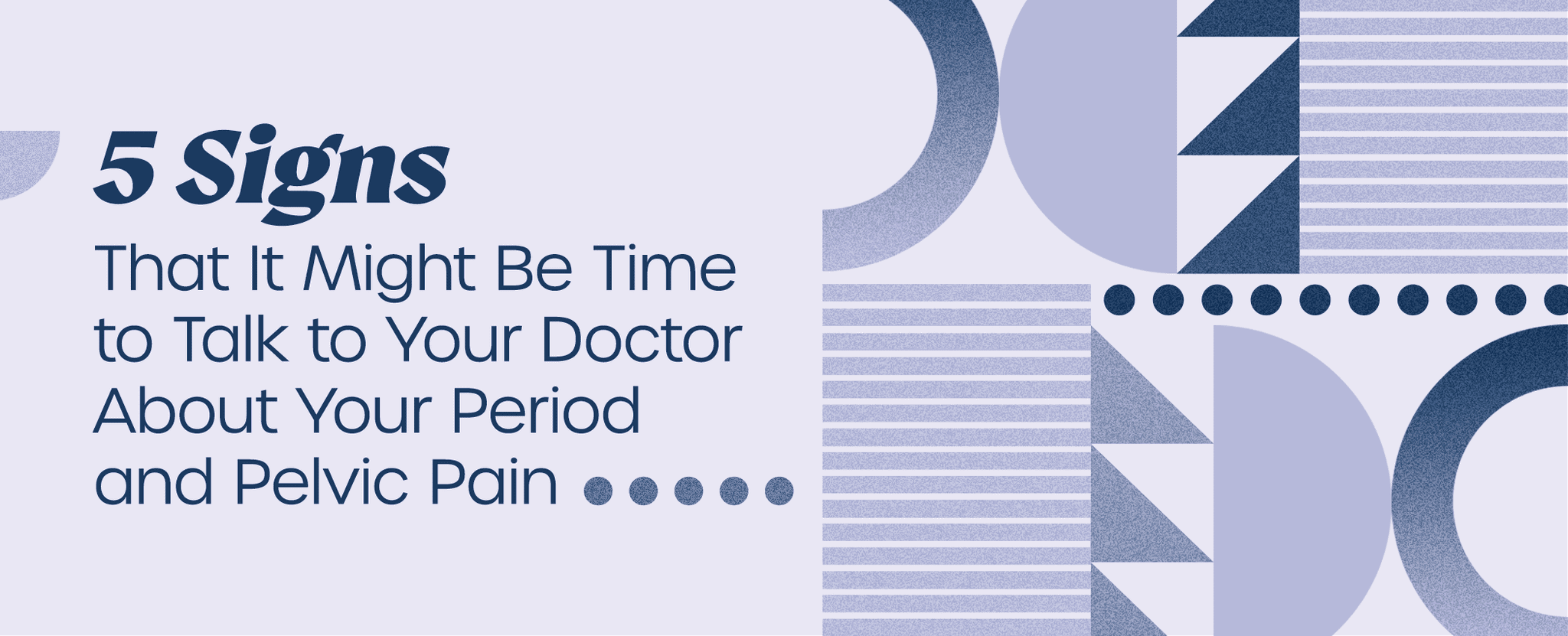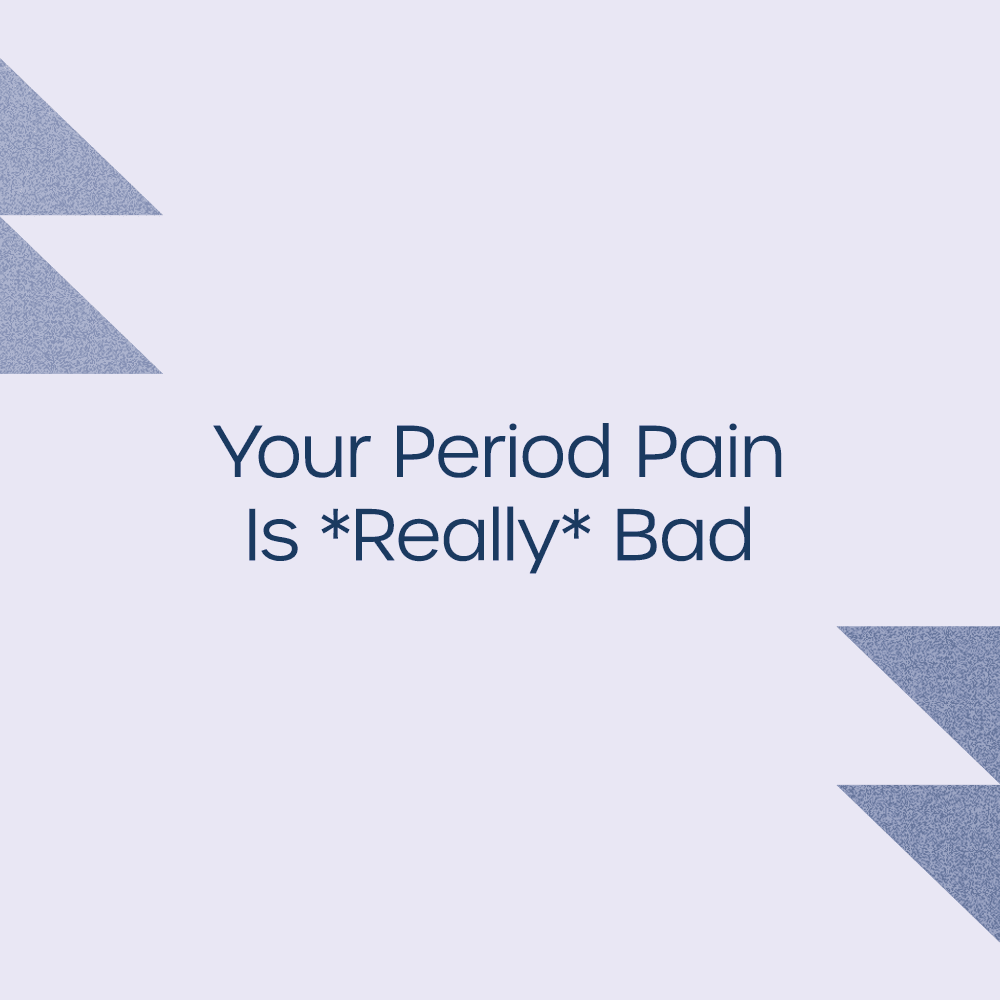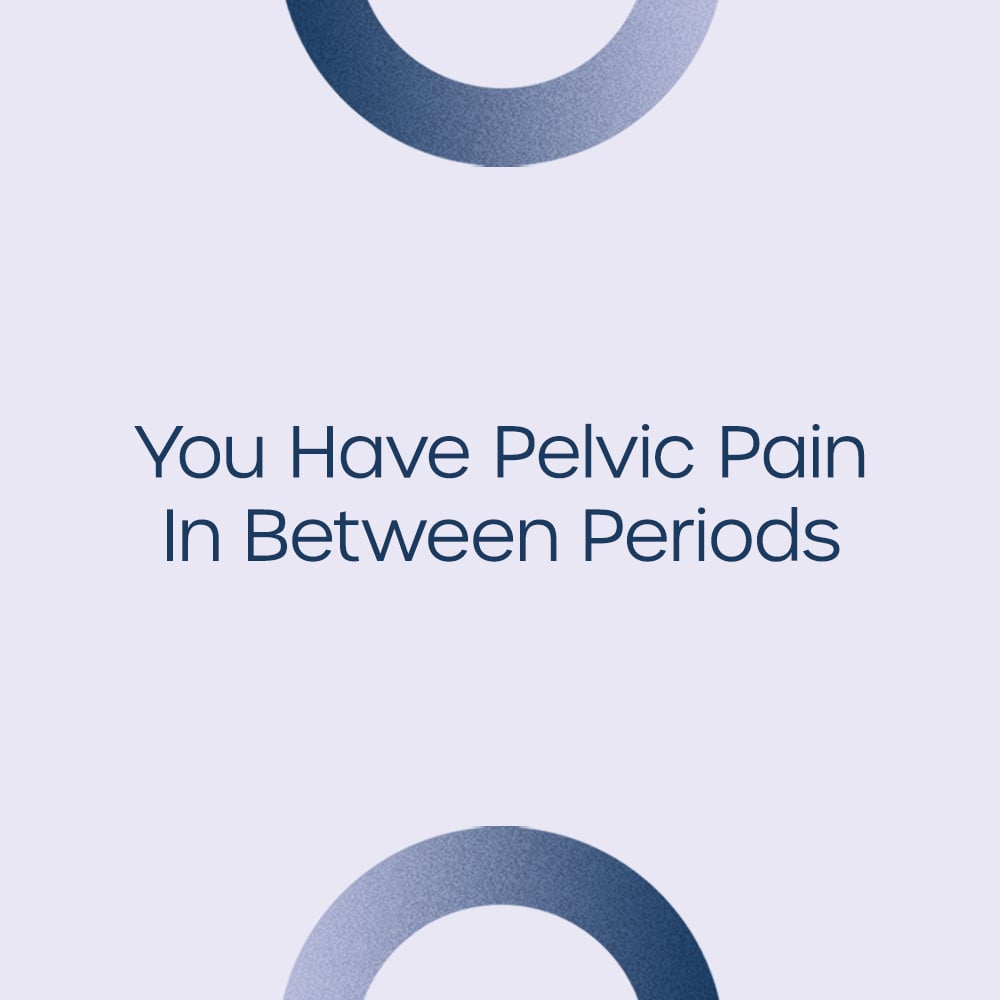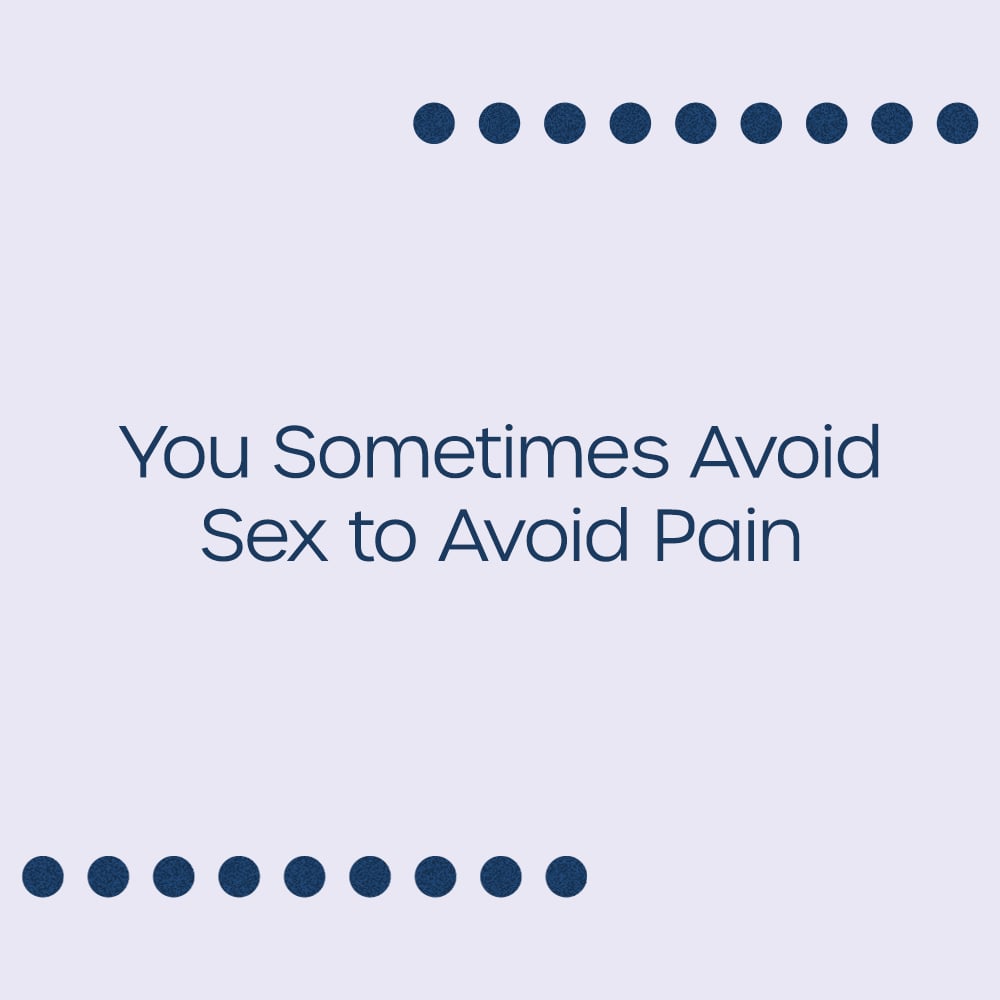
Common Symptoms of Endometriosis
5 Signs It Might Be Time to Talk to Your Doctor About Your Period and Pelvic Pain

Periods have been taboo for a long time. After all, we learn to refer to menstrual cycles as “that time of the month” and allude to our periods with euphemisms like “a visit from Aunt Flo.” Even as more and more women start to take ownership of the conversation around their health, frank discussions about menstruation are still rare.
That's one reason why many women suffer through painful cramps or chronic back pain month after month without speaking up: if they can't talk about their symptoms, living with pain is something they just have to deal with. Those symptoms could be a sign of something more serious, though — like endometriosis, which affects 1 in 10 women of reproductive age. Endometriosis occurs when tissue that lines your uterus — called endometrium — starts growing outside of your uterus where it doesn’t belong, often causing painful periods, pelvic pain between periods, and pain with sex.
Even if you’re not comfortable talking about your period with your friends, it’s important that you’re able to speak openly with your doctor to help determine if a diagnosis is needed for a condition like endometriosis. If any of these five symptoms sound familiar to you, it’s time to make an appointment with your doctor.


Even if you’ve gotten used to doing your best to manage painful periods on your own, that doesn’t mean you should believe it’s normal. Painful periods month after month can be a sign of endometriosis. Whether the pain is dull, throbbing, or sharp, consistently painful periods could be a sign of the chronic condition.


Pelvic pain in between periods — also known as non-menstrual pelvic pain — is another common symptom of endometriosis. Tell your doctor about any frequent pain in your pelvis or lower back before or after your period, especially if it limits your day-to-day activities.


Not being in the mood is one thing, but avoiding sex because it's just too painful shouldn't be normal. Many women with endometriosis find sex painful because endometrial tissue has grown behind the vagina and lower uterus. Pain with sex (also known as dyspareunia) can range from mild to excruciating. Talk to your doctor if you ever find sex painful.


Endometriosis pain isn’t always just concentrated in the pelvis. For some women, it can also occur with lower back pain. For some women, endometriosis pain can be sharp and sudden; for others, it's dull and throbbing. Even if your back pain ebbs and flows, it’s best to talk to your doctor about it.


Endometriosis can also affect your digestive system. Diarrhea, constipation, bloating, or nausea — especially during your period — can be common symptoms of endometriosis. Although it may seem strange to talk to your gynecologist about digestive issues, it's important to let him or her know about painful bowel movements. Symptoms of endometriosis can sometimes overlap with associated conditions, so make sure to tell your gynecologist about all of your symptoms.

If you think that you might be experiencing these symptoms, it's important to make an appointment with your doctor and speak openly about your symptoms. Everyone is different, so letting your doctor know about your specific combination of symptoms is key to determining what treatment plan may work best for you.
When you meet with your doctor, tell them about all the symptoms you’re having. It can be helpful to write down your symptoms and questions beforehand, so you're less likely to leave out any important information. SpeakENDO even has a handy guide you can follow. You’ll also want to find out if any women in your family have been diagnosed with endometriosis, as some studies suggest that the disease might have a genetic component.
If you are diagnosed with endometriosis, your doctor will likely suggest a treatment plan based on the extent of the disease, your specific symptoms, and individual treatment goals and preferences. While there is currently no cure for endometriosis, there are medications that can help with the pain, such as hormonal medications and pain relievers. In some cases, surgery can also help relieve pain from endometriosis.
The bottom line? Don’t let your pain become your new normal. Make an appointment with your doctor if you have any of these symptoms, and in the meantime, visit SpeakENDO for more information.